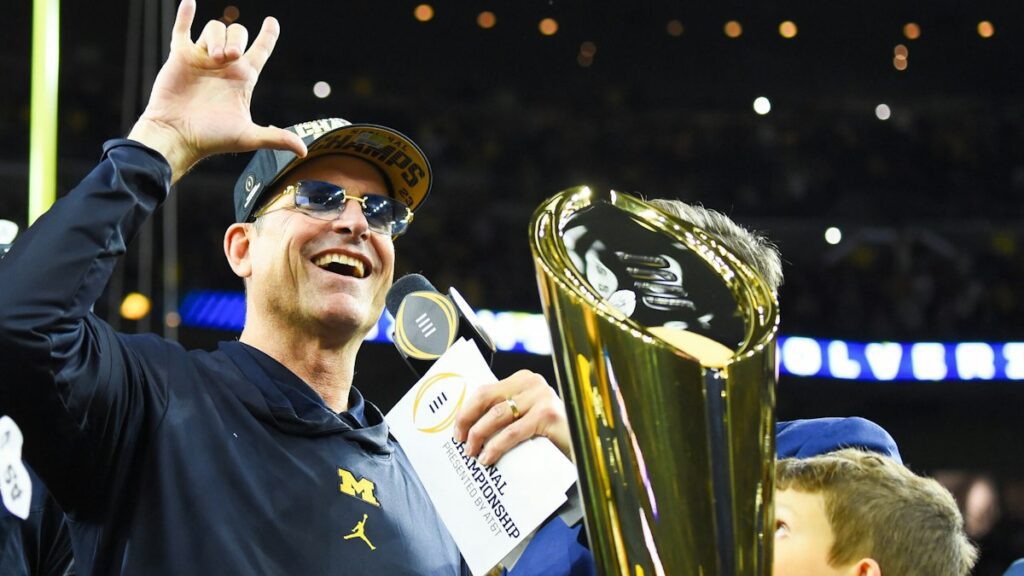In a shocking move on the heels of a triumphant season, University of Michigan’s head football coach, Jim Harbaugh, is leaving the school to return to the NFL, trading his place at the crown of college football to join the Los Angeles Chargers. This seismic shift, caught ESPN’s Adam Schefter to proclaim, “The Chargers get their man while the national champions now have a head-coach opening.” The insinuation behind such a move, following Harbaugh’s stellar track record and recent success, reverberates across the sports world like a championship-winning touchdown.
Harbaugh’s departure comes hot on the heels of leading his team to a resounding 34-13 victory over the Washington Huskies in the College Football Playoff National Championship. The outstanding success shortly follows reports of Michigan extending an offer to Harbaugh that would have catapulted him to the heights of the highest paid college-level coach. Yet, under the weight of a highly publicized sign-stealing scandal, Harbaugh has declined the offer, preparing to return to the arena he previously graced as the head coach for the San Francisco 49ers and Stanford.
The same success that propelled Harbaugh towards an unmatched offer now cloaks him in controversy within the college football scene. Michigan’s golden year under Harbaugh’s leadership has been riddled with allegations of sign-stealing. The scandal, which CBS Sports suggests could lead to major NCAA violations, seems to be at the center of Harbaugh’s contract negotiations. He sought from the school immunity from dismissal, as palpable tension grows around charges of sign-stealing.
With the strengthening of the NCAA’s coach responsibility provision just over a year ago, Harbaugh is put in a precarious position. A Level I violation could be charged against him if any of his staff members are found guilty, a stain that would persist on his record regardless of his personal involvement or awareness. Additionally, NCAA investigations into alleged recruitment violations during the height of the coronavirus pandemic pose a serious threat to Harbaugh’s reputation within the college-level sports ecosystem.
The potential consequences of these allegations beg the question of whether Harbaugh’s shift back to the NFL is an attestation to his proven success or a tactical escape from the legal labyrinth he faces in college football. According to both the CBS Sports report and opinion from legal experts, had Harbaugh decided to stay at Michigan, he would potentially have been “on the hook for substantial legal fees” to fight both cases.
The interplay between Harbaugh’s celebrated professional momentum and the looming specter of potential NCAA violations paints a fascinating picture of the volatility on the grand stage of sports. It highlights the continual dance between success and scandal, achievements, and allegations, sometimes forcing the champs on the field to turn tail when the whistle blows off the field.
Thus, as Jim Harbaugh steps onto the NFL field once more, the narrative that trails him is a complex ballad of power, controversy, success, and survival. His strategic maneuver from the Michigan Wolverines to the Los Angeles Chargers provides a stark reminder of football’s ever-changing playing field and its high-stakes game where one must constantly adapt or risk being sidelined. The lingering question is how he will fare under the bright lights of the NFL amidst the growing shadows of his collegiate past.



